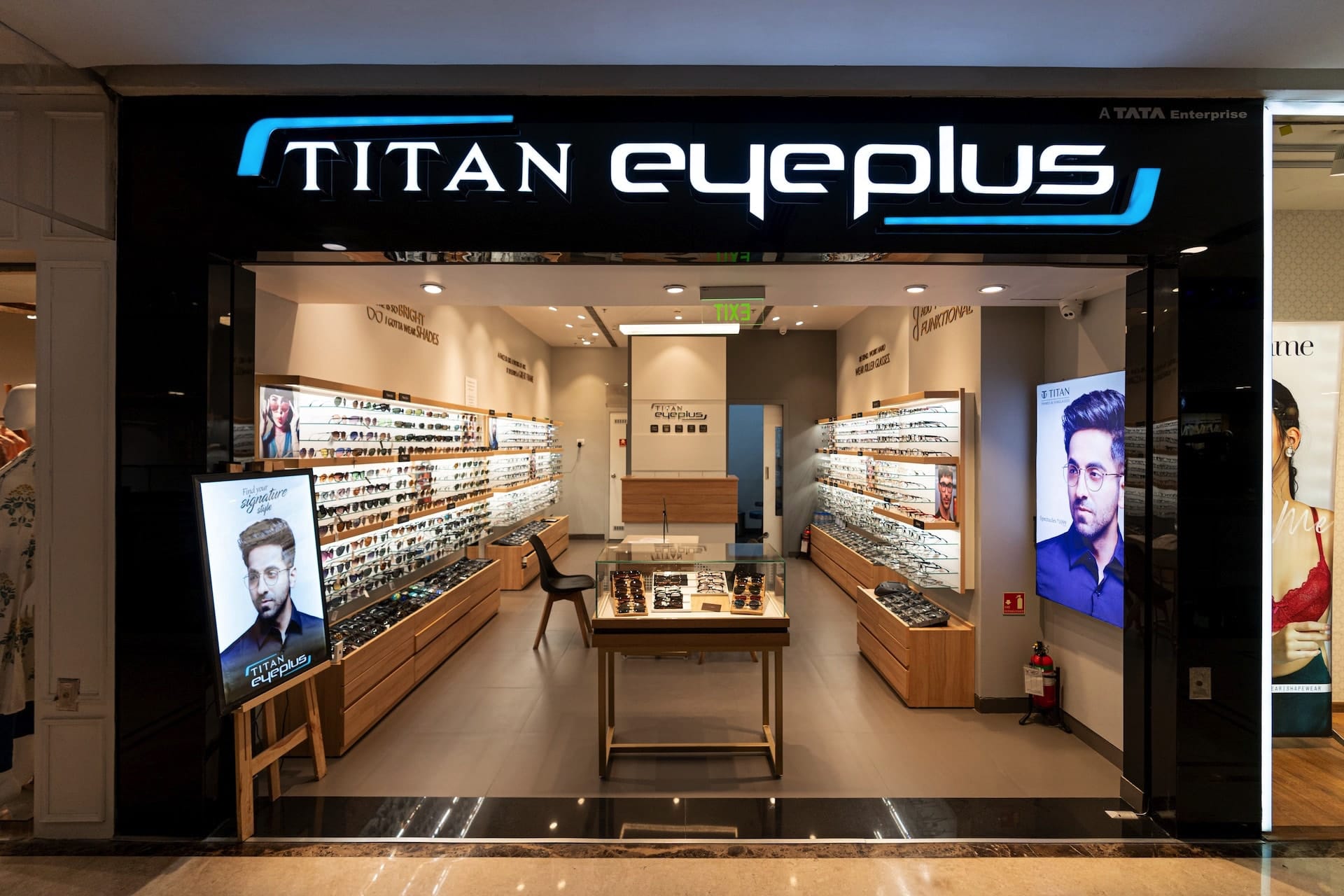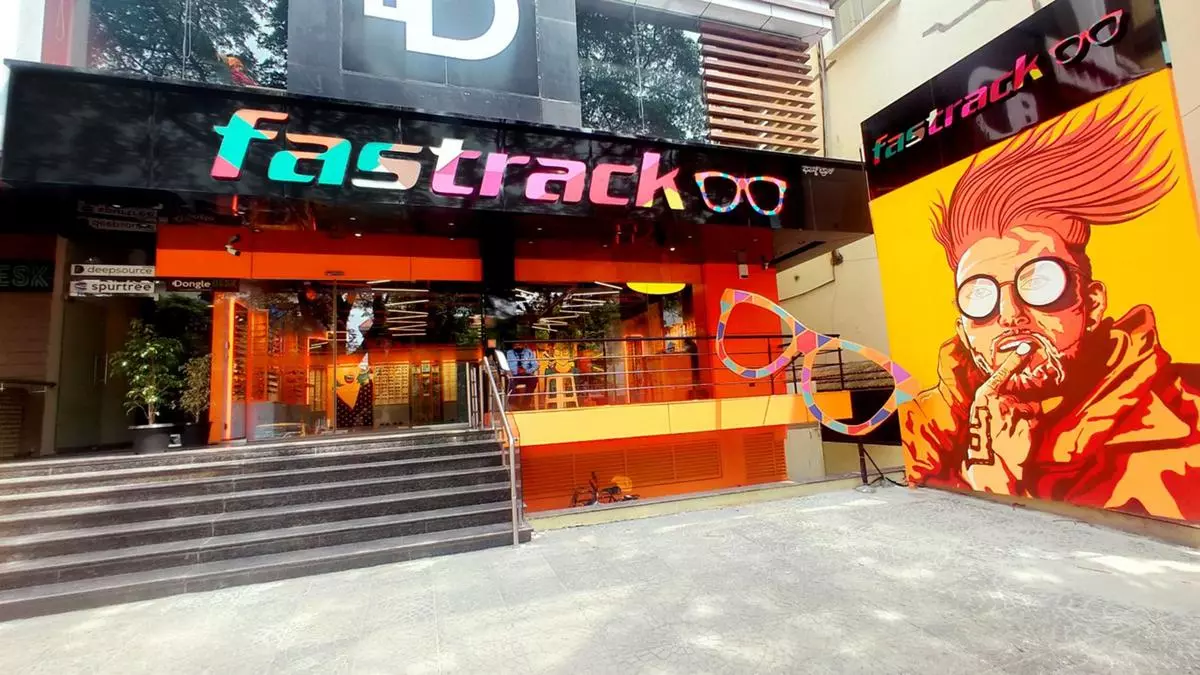CaratLane on the Fast Track: Titan Eyes Omnichannel Play 2023

CaratLane on the Fast Track: Titan Eyes Omnichannel Play 2023
Caratlane stands apart in a world where cash burn is typical. The omni-channel business, which caters to young people and specialising in diamond-studded jewels, has been profitable for the past three years.
As co-founder Mithun Sacheti puts it, the company has maintained profitability by putting more of an emphasis on cash flows by reducing expenses and expanding franchisee locations as opposed to operating company-owned outlets.
The company reported a net profit of Rs 102 crore last year on revenues of Rs 2,155 crore, up more than 71%. Prior to that, it declared profits of Rs 2 crore and Rs 99 crore in FY21 and FY22, respectively.

Sacheti characterised his business as “tenacious and efficient” in response to a LinkedIn article about thriving B2C brands from roughly a year ago.
We are not the kind to make a lot of noise outside. We are the group that puts its heads down and concentrates on learning more about its customers, he added. It’s understandable why he left the company he founded in the middle of August by selling Titan his remaining 27.18% interest for an astounding Rs 4,621 crore. Titan’s purchase of the shareholding places a value of Rs 17,000 crore—nearly eight times Caratlane’s FY23 revenues of Rs 2,155 crore—on the company.
Despite early valuation worries, the Tata family, which initially purchased a share in Caratlane seven years ago, acted quickly to increase their ownership in the jewellery company from 71.09% to 98.28%. They plan to complete the purchase by the end of October, as previously stated, and then look at buying the remaining 1.72% of the company’s stock from employees. In the following two years, they would contemplate combining Caratlane with Titan, the largest organised jewellers in the nation.

Titan’s chief financial officer, Ashok Sonthalia, told FE that a purchase of Caratlane’s whole stock will ultimately take place. We are concentrating on the completion of the present deal, therefore I am unable to provide a specific timetable, Sonthalia stated.
Titan is anticipated to benefit from Caratlane’s market-spanning omnichannel capabilities by opening outlets in smaller towns and cities. According to top corporate officials, it may use more of its artificial intelligence and machine learning skills to offer a smooth online buying experience and may aggressively enter the gifting market.
Analysts are nevertheless optimistic about a possible merger between the two companies. “The purchase of a 27.18% share consolidates Titan’s ownership in Caratlane. With an omnichannel strategy in Caratlane, Titan will be able to fully capitalise on growth opportunities in the light jewellery market. In the upcoming one to two years, we don’t rule out a merger of Caratlane with Titan, according to Prabhudas Lilladher brokerage analysts Amnish Aggarwal, Harish Advani, and Vishwa Solanki.
Caratlane has been dubbed an anomaly in the jewellery industry by several experts due to its three times higher sales than those of its rivals Bluestone and Melorra. In FY23, Caratlane launched 84 stores, making it the company’s quickest rollout ever. As a result, the company now has 222 locations. Additionally, the company’s 35% gross margins were better than Titan’s Tanishq for the same time period.
Another comparison reveals that in FY23, Titan’s standalone jewellery revenue (excluding subsidiaries) increased by 40%. Despite the fact that the number appears to be lower than the pace set by Caratlane, it is important to keep in mind that Titan has a far larger revenue base.

Given its attractiveness to Gen Zs and millennials, analysts at Nuvama think Caratlane has a great chance of growing. “The everyday jewellery segment may grow at a compounded annual growth rate of 15% over the next few years, which is higher than the rate of growth of the traditional jewellery market,” they said. According to estimates, the market for traditional jewellery is expanding at a rate of 7-8% annually.
Between FY24 and FY26, analysts at Prabhudas Lilladher predict Caratlane’s top line will increase by nearly 30%, and during the same period, operational profit margins would increase from the current 5-6% to roughly 9-10%. Net income might increase to between Rs 150 and 200 crore.
Since being bought by Titan seven years ago, Caratlane has improved its business strategy and internalised the maxim of efficiency. The Titan division is most well-known for maintaining a close eye on fashion trends that appeal to young ladies and for offering styles and pricing points that are both reasonable and long-lasting. Its trademark has been the seamless integration of retail and internet platforms.
“Caratlane is an experienced multichannel player. When it comes to a customer experience, I’d say it’s among the top e-commerce companies.
seamless online and offline interaction. Titan has learned the technology used to power this from Caratlane. Naturally, they have profited from our extensive offline network and jewellery expertise,” adds Sonthalia.
Caratlane had 233 outlets in 93 cities at the end of June as opposed to 15 stores in FY17, when Titan originally acquired a 62% ownership in the business. The transaction valued the jewellery merchant at Rs 357.24 crore, or Rs 576.19 crore, or four times its FY16 revenues of Rs 141 crore.

According to Sonthalia, during the next few years, the business may open 50 to 60 additional Caratlane locations annually.”The jewellery industry is enormous, and Caratlane has a lengthy expansion window. Although it is the market leader in casual jewellery, there is room for expansion, according to him.
In the ever-evolving landscape of the jewelry industry, CaratLane, a subsidiary of Titan Company Limited, has emerged as a trailblazer. Known for its innovative approach to selling jewelry and its commitment to providing customers with a seamless shopping experience, CaratLane has rapidly grown in stature. In this article, we’ll delve into CaratLane’s journey and how Titan is positioning it to excel in the omnichannel retail space.
CaratLane was founded in 2008 by Mithun Sacheti and Srinivasa Gopalan as a response to the changing dynamics of the jewelry market. The traditional jewelry industry was dominated by brick-and-mortar stores, which often lacked transparency and convenience for customers. CaratLane aimed to disrupt this paradigm by combining the allure of fine jewelry with the convenience of e-commerce.
In 2016, Titan Company Limited, a Tata Group company and a leading player in the Indian watch and jewelry industry, acquired a majority stake in CaratLane. This strategic move not only infused capital into CaratLane but also provided it with the expertise and support of a well-established industry player.

Recognizing the shifting preferences of consumers, Titan has been instrumental in steering CaratLane toward an omnichannel retail model. Omnichannel retailing involves seamlessly integrating online and offline channels to provide customers with a cohesive shopping experience. This approach aligns with the changing dynamics of the retail industry, where customers often research products online before making in-store purchases or vice versa.
CaratLane has been expanding its network of physical stores, often referred to as “phygital stores.” These stores allow customers to touch and feel the jewelry while also benefiting from the digital infrastructure that CaratLane has built. Customers can explore CaratLane’s entire catalog through interactive kiosks, enabling a seamless transition between online and offline shopping.
To enhance the online shopping experience, CaratLane has introduced AR and VR features. Customers can virtually try on jewelry, getting a better understanding of how pieces will look on them before making a purchase. This technology-driven approach helps bridge the gap between the digital and physical worlds.
CaratLane places a strong emphasis on understanding its customers’ needs and preferences. Through data analytics and personalized recommendations, it tailors its offerings to individual tastes, creating a more engaging and satisfying shopping experience.

CaratLane offers multiple touchpoints for customers, including its website, mobile app, social media channels, and physical stores. This ensures that customers can interact with the brand in the way they find most convenient.
Recognizing the significance of affordability, CaratLane provides customers with flexible payment options, including installment plans and easy EMIs. This makes high-quality jewelry accessible to a broader demographic.
While CaratLane’s omnichannel approach offers numerous advantages, it also presents certain challenges. Maintaining consistency across all channels, managing inventory effectively, and ensuring a seamless customer experience are ongoing concerns. Additionally, competition in the online jewelry space is fierce, with both traditional players and new entrants vying for market share.
However, the jewelry industry is ripe with opportunities. India’s growing middle class, increasing disposable income, and a cultural affinity for jewelry bode well for the sector. By leveraging Titan’s resources and expertise, CaratLane is well-positioned to capitalize on these opportunities.

CaratLane’s journey from a startup disrupting the traditional jewelry industry to an omnichannel powerhouse under Titan’s guidance is a testament to its innovative spirit. As it continues to combine the allure of fine jewelry with cutting-edge technology and a customer-centric approach, CaratLane is poised to shape the future of jewelry shopping in India and beyond. With the omnichannel approach as its compass, CaratLane is on the fast track to becoming a leading player in the global jewelry market.




